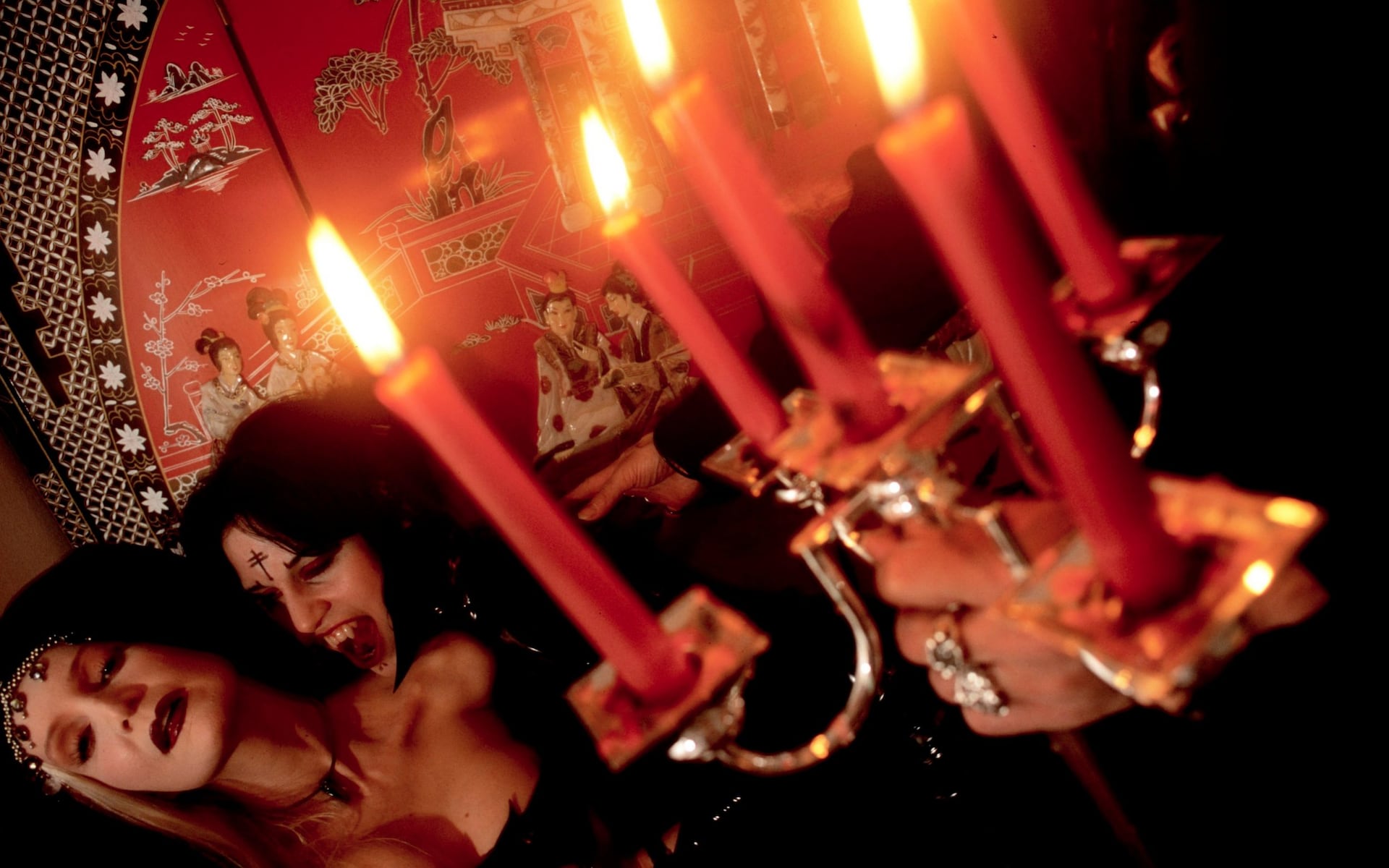 Club-goers at a vampire-themed night at the Limelight nightclub, which occupied a deconsecrated church in Manhattan, New York CREDIT: MARK PETERSON/GETTY
Club-goers at a vampire-themed night at the Limelight nightclub, which occupied a deconsecrated church in Manhattan, New York CREDIT: MARK PETERSON/GETTY
From strip joints to nightclubs and pizzerias, the Vatican is urging Catholic countries around the world not to allow deconsecrated churches to be used for profane purposes, in the first conference dedicated to the issue.
Falling congregations, a lack of clergy and crippling maintenance costs means that thousands of Catholic churches around the world are being decommissioned and turned into restaurants, pubs, cafes and even skateboarding venues.
More than 500 Catholic churches have closed down in Germany since 2000, while in Canada one fifth of Catholic churches were deconsecrated in the same period.
In the Netherlands, an estimated 500 churches are due to fall out of religious use in the next decade.
There is a danger that they will end up being used for “inappropriate activities”, as one delegate delicately put it at the conference, titled “Doesn’t God Live Here Anymore?”
“I know of a little church in northern Ontario that was turned into a strip club,” Paul-André Durocher, the archbishop of Gatineau in Canada, told The Telegraph. “It went up in flames, thank God. That’s one of the worst examples.”
In Prague, a church was turned into an ice cream parlour, while in Arnhem in the Netherlands, a deconsecrated church became a skateboarding hall.
In Asti in northern Italy a church has been turned into a bar called “Il Diavolo Rosso” – The Red Devil.
In 2005, a late 18th century Catholic church in Liverpool was converted into a nightclub, which is “still very much regretted by the Catholic community,” said Sophie Andreae, vice-chair of the patrimony committee of the Catholic Bishops Conference of England and Wales.
“This is going to be a big issue in the future and that’s why guidance from Rome is so important.”
There was a scandal in Naples earlier this month when a former church was used for a Halloween party, with young women dressed in sexy witch outfits and leather mini-skirts sitting on the altar.
A fashion show held in a church in Florence also caused a stir. “Some of the models were rather scantily clothed,” said Monsignor Carlos Azevedo, one of the conference organisers. “People were a bit scandalised.”
In a message sent to the conference, held in a Catholic university in Rome, Pope Francis acknowledged a decline in the number of faithful and a dearth of priests but said that deconsecrated churches could be given “a new life”, preferably in service of the poor.
Some bishops, including in Britain, are looking at using covenants to lay down legally binding rules about what can and cannot be done with deconsecrated churches.
“The critical thing is that it carries forward so that even if the church is sold again, the covenant still applies,” said Ms Andreae.
While striptease clubs and bars are definitely out, the Vatican looks favourably on former churches being turned into social centres, soup kitchens, museums or bookshops.
“A church in my diocese was turned into a palliative care centre. That’s in keeping with the Church’s mandate,” said Archbishop Durocher.
At the end of the two-day conference, the Vatican is expected to issue guidelines for dioceses around the world on how to manage the sale of deconsecrated churches.
“Property laws differ around the world so it has to be tackled on a country-by-country basis,” said Monsignor Paul Tighe, the secretary for the Pontifical Council for Culture.
“But bishops need to explore what options there are for protecting churches when they are sold.”